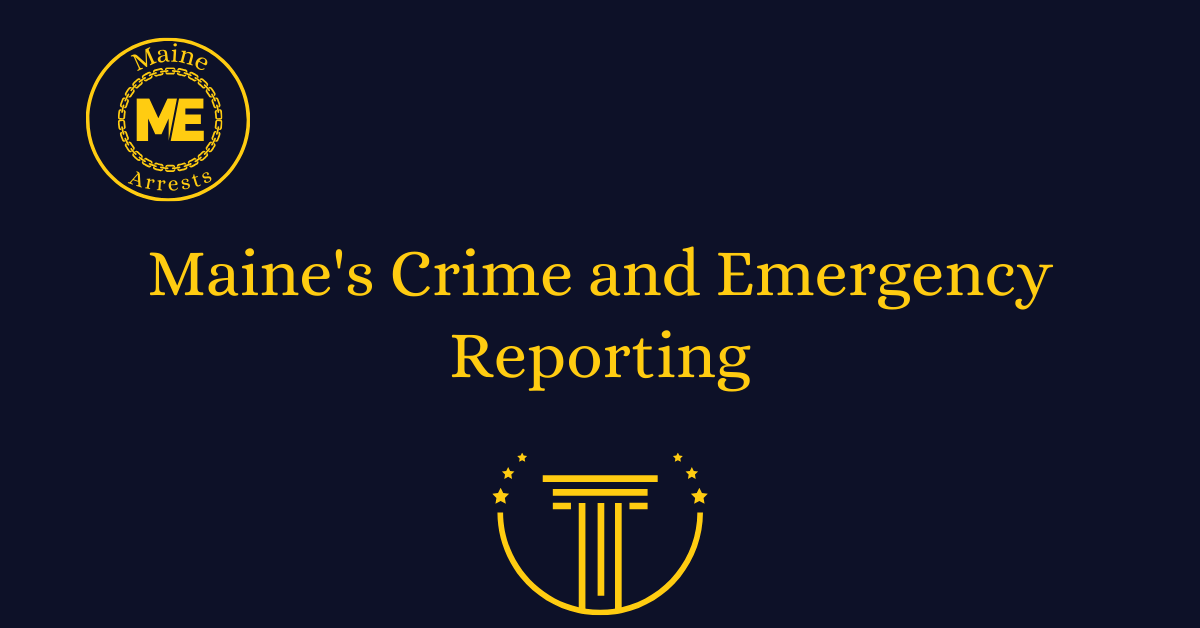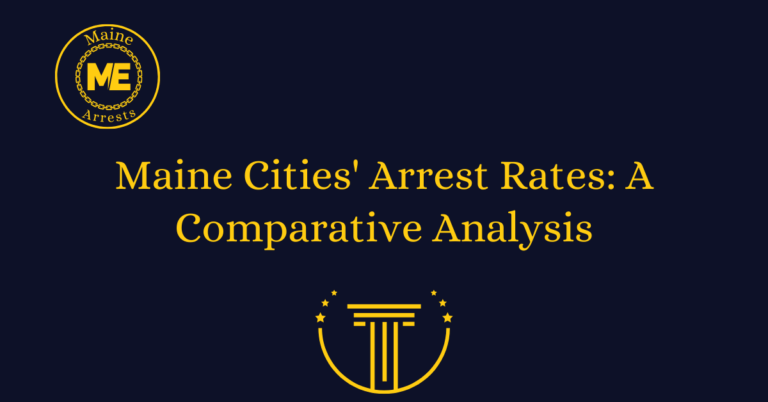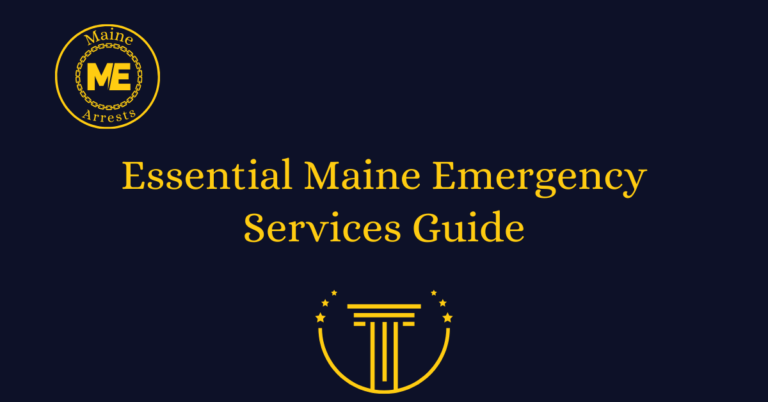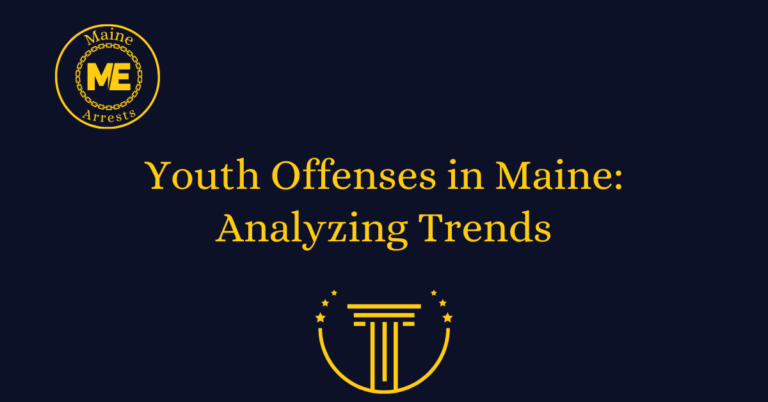Maine’s Crime and Emergency Reporting
Maine, known for its picturesque landscapes and serene coastal towns, also grapples with its share of crime and emergency incidents. From bustling cities to remote rural areas, the state’s law enforcement agencies and emergency responders work tirelessly to maintain public safety and address various challenges. Understanding the landscape of crime and emergency reporting in Maine provides valuable insights into the mechanisms in place to ensure swift responses and effective communication during crises.
Law Enforcement Agencies
Maine’s law enforcement structure primarily comprises state, county, and municipal agencies. The Maine State Police serve as the primary statewide law enforcement agency, overseeing criminal investigations, highway patrol, and specialized units such as tactical teams and drug enforcement. Additionally, county sheriff’s offices play a vital role in enforcing laws and assisting local police departments. Municipal police departments, spread across the state’s cities and towns, handle day-to-day policing duties and respond to emergency calls within their jurisdictions.
Crime Reporting Mechanisms
Reporting crimes in Maine typically involves contacting the nearest law enforcement agency. Residents can dial 911 for emergencies requiring immediate police, fire, or medical assistance. Non-emergency incidents may be reported through dedicated phone lines or online portals established by local police departments or the Maine State Police. These reports serve as the foundation for criminal investigations and statistical analysis to identify trends and allocate resources effectively.
Emergency Response Coordination
Maine’s emergency response framework encompasses various agencies and organizations tasked with mitigating natural disasters, public health crises, and other emergencies. The Maine Emergency Management Agency (MEMA) serves as the central coordinating body, working closely with federal, state, and local partners to develop preparedness plans, conduct training exercises, and coordinate responses during emergencies. Additionally, organizations such as the American Red Cross and volunteer fire departments play crucial roles in providing assistance and support to affected communities.
Public Safety Communications
Effective communication is paramount in managing emergencies and disseminating critical information to the public. Maine’s public safety agencies utilize a range of communication tools, including emergency alert systems, social media platforms, and traditional media channels, to convey important updates, warnings, and instructions during crises. Collaborative efforts between government agencies, media outlets, and community organizations ensure timely and accurate information reaches residents, helping them make informed decisions and take necessary precautions.
Challenges and Innovations
Despite concerted efforts to enhance crime reporting and emergency response capabilities, Maine faces various challenges, including limited resources, geographical barriers, and evolving threats such as cybersecurity breaches and opioid addiction. However, ongoing initiatives seek to address these challenges through technology integration, community partnerships, and proactive measures aimed at preventing and mitigating emergencies. Innovations such as predictive analytics, mobile applications for reporting incidents, and community policing strategies contribute to more efficient and responsive public safety practices.
Community Engagement and Collaboration
Community involvement is integral to the success of crime prevention and emergency preparedness efforts in Maine. Neighborhood watch programs, citizen academies, and community policing initiatives foster trust and cooperation between residents and law enforcement agencies, empowering communities to play an active role in enhancing safety and security. Moreover, collaborative partnerships between government entities, businesses, schools, and nonprofit organizations strengthen resilience and promote collective action in addressing complex public safety challenges.
FAQS
What is Maine’s Crime and Emergency Reporting?
Maine’s Crime and Emergency Reporting is a comprehensive system that tracks and reports crime and emergency incidents in the state of Maine. It provides real-time updates and statistics on various criminal activities and emergencies.
How can I access Maine’s Crime and Emergency Reporting?
You can access Maine’s Crime and Emergency Reporting through the official website of the Maine Department of Public Safety. The website provides a user-friendly interface where you can search for specific incidents, view crime maps, and access detailed reports.
What information does Maine’s Crime and Emergency Reporting provide?
Maine’s Crime and Emergency Reporting provide detailed information on various types of crimes, including but not limited to theft, assault, burglary, and drug-related offences. It also includes emergency incidents such as fires, accidents, and natural disasters.
How frequently is Maine’s Crime and Emergency Reporting updated?
Maine’s Crime and Emergency Reporting is updated in real-time, ensuring that users have access to the most recent and accurate information. The system is constantly monitored and updated by law enforcement agencies to provide the most up-to-date data.
Can I report a crime or emergency through Maine’s Crime and Emergency Reporting?
No, Maine’s Crime and Emergency Reporting is a system for tracking and reporting incidents that have already occurred. If you need to report a crime or emergency, you should contact the appropriate authorities or emergency services directly.
Is Maine’s Crime and Emergency Reporting available on mobile devices?
Yes, Maine’s Crime and Emergency Reporting is designed to be responsive and accessible on various devices, including smartphones and tablets. You can access the system through the official website or download the mobile app for convenient access on the go.







